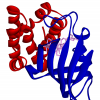I just took creatine monohydrate yesterday with caffeine and I actually noticed an improvement in brain performance.
I've tried different stuff but most of them doesn't work.
Only things so far that has worked on me:
Creatine monohydrate mixed with apple juice
Caffeine
Zinc
Omega 3 fats.
What should I take in addition to creatine to get a even better cognitive effect?
Creatine requires a loading phase of about 5 days to work more effectively, and then a small daily maintenance dose,
its best taken with some simple carbohydrates to enhance absorption
most studies say that caffeine and creatine should not be taken at the same time as they compete against each other
I was a vegetarian/vegan for 10 years, and both my physical and cognitive abilities gradually declined towards the end of that period
I have been supplementing with creatine mono for the last few weeks and I have noticed a remarkable increase both my physical and
cognitive abilities. I have also noticed an improvement in my general sense of well-being
I have tried nearly all of the racetams and to be honest they didn't do much for me, some of them made my symptoms worse
creatine fuels both the muscles and the brain, try it, you might be surprised

















































